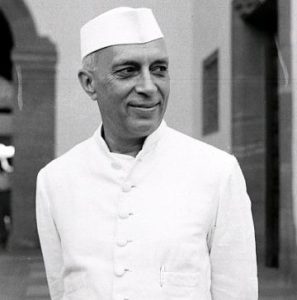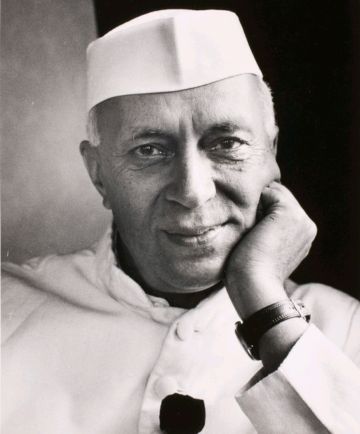Pandit Jawaharlal Nehru, born on November 14, 1889, in Allahabad, India, remains one of the most influential figures in Indian history. Revered as India’s first Prime Minister, Nehru was instrumental in enhancing the nation post-independence, with his emphasis on secularism, scientific development, and education reform. Known affectionately as Chacha Nehru by Indian children, his legacy is commemorated yearly on his birthday, observed as Children’s Day in India.
Pandit Jawaharlal Nehru Biography
Early Life and Education
- Real Name: Jawaharlal Nehru
- Date of Birth: November 14, 1889
- Place of Birth: Allahabad (now Prayagraj), Uttar Pradesh, India
- Religion: Hinduism
Jawaharlal Nehru was born into a wealthy and politically active family. His father, Motilal Nehru, was a prominent lawyer and leader within the Indian National Congress. Nehru was educated at Harrow School and later attended Trinity College, Cambridge, where he pursued studies in natural sciences. He then completed his legal training at Inner Temple in London before returning to India in 1912 to practice law.
Marriage and Family Life
Wife: Kamala Nehru (m. 1916)
Children: Indira Gandhi (Nehru’s only daughter, who later became Prime Minister of India)
In 1916, Nehru married Kamala Kaul, who supported him in his political journey despite her ill health and ultimately passed away in 1936. Nehru’s daughter, Indira Gandhi, followed in his footsteps, eventually becoming Prime Minister herself and contributing immensely to Indian politics.
Political Career
Jawaharlal Nehru joined the Indian National Congress and rapidly rose as a leader of the independence movement under the mentorship of Mahatma Gandhi. Nehru’s alignment with Gandhi’s principles of non-violence and civil disobedience, along with his vision for a modern, secular India, positioned him as a key player.
Following India’s independence from British rule in 1947, Nehru became the first Prime Minister and held the position until his death in 1964. His administration focused on modernization, industrialization, and democratic socialism, while upholding a neutral stance in international politics, known as the Non-Aligned Movement.

Key Contributions:
Economic Policies: Nehru promoted state-led industrialization and established several public-sector enterprises, aiming to build a self-reliant economy.
Foreign Policy: He advocated for non-alignment, maintaining neutrality amidst Cold War tensions, while fostering relationships with both the U.S. and USSR.
Education and Science: Nehru was instrumental in establishing institutions like the Indian Institutes of Technology (IITs) and the Indian Space Research Organisation (ISRO).
Check Also: Magdalena Chodownik Wikipedia, Biography, Age, Partner, Career, Family, Net Worth
Net Worth and Legacy
While Nehru did not accumulate personal wealth as a political leader, his legacy is priceless to modern India. Nehru’s commitment to secularism, democracy, and education remains integral to India’s identity. His life and work continue to be celebrated and analyzed, and the institutions he helped establish serve as enduring symbols of his vision.
Jawaharlal Nehru in Recent Times (2024 Commemoration)
On May 27, 2024, marking the 60th anniversary of his death, Indian leaders paid tribute to Nehru’s influence. Prime Minister Narendra Modi and leaders of the Congress Party acknowledged his contributions to democracy, secularism, and education reform. Nehru’s views on reservations and his stance on equality have also resurfaced, with contemporary leaders revisiting his balanced approach to caste and economic issues.
FAQs about Jawaharlal Nehru
What was Jawaharlal Nehru’s full name?
His full name was Jawaharlal Nehru, and he was often referred to as Pandit Nehru, denoting his Kashmiri Brahmin heritage.
Who was Nehru’s wife?
Nehru married Kamala Kaul in 1916, who played a significant role in supporting his political career until her death in 1936.
What was Nehru’s educational background?
Nehru studied at Harrow School, attended Trinity College, Cambridge, and trained as a barrister at the Inner Temple in London.
What was Nehru’s impact on India’s foreign policy?
Nehru championed the Non-Aligned Movement, promoting neutrality in Cold War conflicts while advocating for peace and cooperation.
How is Jawaharlal Nehru remembered today?
Nehru is commemorated annually on his birthday, November 14, as Children’s Day in India. His contributions to democracy, secularism, and modernization continue to influence Indian society and policy.
Conclusion
Pandit Jawaharlal Nehru’s vision and dedication helped lay the groundwork for modern India. His contributions to secularism, education, and industrial development remain core pillars of the nation. Nehru’s life is not only a testament to India’s journey to independence but also a blueprint for the country’s continuous growth and development.
